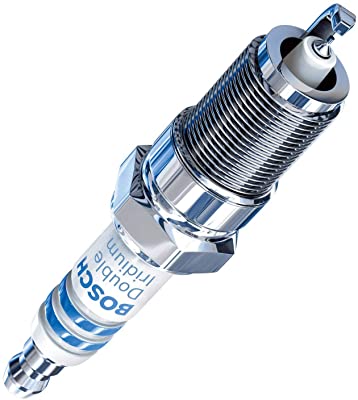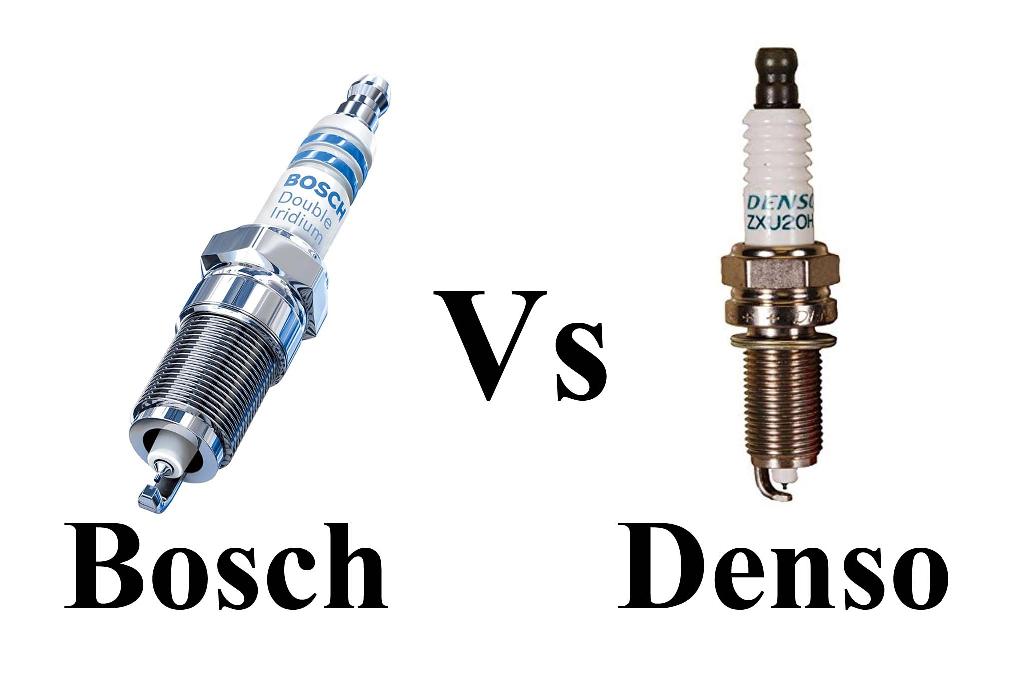Bosch Vs Denso spark plugs is a never-ending debate. There are a few differences in their technologies. For instance, Bosch is a colder plug which means it can manage the heat in the firing tip more effectively, Denso plugs are comparatively hotter than Bosch’s. Again Denso’s power technology is unbeatable. These two are not that much different in their functioning. However, users have rated Denso more than Bosch for compatibility.
A spark plug is a tiny component in a vehicle’s engine, it creates an electrical arc that creates a spark to start the engine. Many functions of your automobile are affected by this component and importantly spark plugs keep your vehicle workable. The benefits of a good spark plug are that it improves the engine’s performance, saves your fuel budget, decreases exhaust emission, maintains the safety of the engine, improves the engine’s response, etc.
Bosch and Denso both offer your engine a quick start, super acceleration, and better throttle response. Choosing the right one will also depend upon your engine’s model and requirements. Installation is also an important factor here. Bosch plugs are best at quality however, they are vehicle specific and need professional help to install. Once you have completed the installation you are all good. Meanwhile, Denso is almost compatible with any type of engine and you can install them by yourself. That is why Denso is more favorable. Our writing will guide you to know the major and key differences between Bosch and Denso spark plugs.
What is a Bosch spark plug?

Originating from Germany in 1886, Bosch is a multinational engineering and technology industry. Robert Bosch GmbH established the company; in the present day, most parts of the firm are owned by Robert Bosch Stiftung, which is a charitable institution. Bosch is an Erasmus industry with a variety of different products.
Their business is segmented into four major parts such as mobility which produces hardware and software, consumer products which include household appliances and power tools, industrial technology manufacturers drive and control, and lastly, energy and building technology which provide heating systems to household and industrial sectors. Spark plugs are manufactured in mobility solutions, which contributes 60% to the whole company’s sales.
What is a Denso spark plug?

Denso Corporation is an automotive parts manufacturer based in Japan. They used to produce components with Toyota Motor. In 1949 they separated from Toyota and started as an independent company. The name Denso in Japanese means ‘electricity’ and ‘device’.
They design and produce automobile components for gasoline and diesel engines, hybrid vehicle components, temperature control systems, instrument clusters, airbag systems, pre-crash radar systems, and spark plugs. Denso also creates and manufactures non-automotive components such as home heating systems and industrial robotics.
Bosch Vs Denso: Key differences
| Comparison | Bosch | Denso |
| Origin | Germany | Japan |
| Functions | Manufacturers | To create a strong spark for cold start and rapid acceleration |
| Technologies | EVO spark plugs, Iridium pin-to-pin, double iridium, platinum+4, silver plugs | Double platinum, double iridium power, and racing, Nickel TT, Iridium TT |
| Materials | Copper, Platinum, Iridium, nickel with copper | Copper, Platinum. Iridium, nickel |
| Manufactures | Spark plugs, hardware, house applications, industrial technologies, and etc. | Spark plugs, temperature control system, airbag system, pre-crash rader. |
| Heat Range (colder to hotter) | 2-10 | 37-9 |
| Plug gaps | Properly gapped | Pre-gapped |
| Compatibility | Optimum for BMW, Volkswagen, Mercedes-Benz | Toyota, Honda, Ford, Nissan, Mitsubishi, and other types of engines can use these plugs |
| Affordability | Affordable | Little pricey than Bosch but affordable |
Bosch Vs Denso: Major Differences
Both Bosch and Denso are quality spark plugs. They have similar functions to perform, however, they differ in a few features:
- Bosch spark plugs are not as fancy as Denso plugs, but they can manage thermal transfer well and stay durable. Bosch’s plugs are known for their durable performance. Denso plugs have 360-degree laser welding to make them durable.
- Both Denso and Bosch are technologically advanced. Bosch-engineered platinum+4 spark plugs are extraordinarily durable and provide a super spark to the engine. Not only this but also Bosch has various types of spark plugs like silver plugs, double platinum, and iridium plugs. Whereas, Denso has TT (Twin Tip) technology, U-grooved electrode, and double inlay of platinum and iridium in a plug for better engine performance.
- Bosch spark plugs need good maintenance, Denso plugs do not require that. However, sometimes your driving pattern can cause harm to any kind of spark plug, in that you have to fix your driving conditions.
- Spark plugs from Bosch have self-cleaning temperatures for reducing carbon deposits and starting the engine faster. Denso can start the vehicle fast but no self-cleaning temperature is observed in these plugs.
- Denso’s U-grooved technology reduces misfires, but Bosch rarely causes misfires.
- Bosch’s ultra-fine wire and laser welder trapped ground electrode deliver optimum performance. Denso’s racing spark plugs are made with ultra-fine wire technology.
- Bosch’s rib insulator prevents flashover. Denso’s purified alumina powder is used in the insulator to increase thermal connectivity for enhanced longevity.
- Denso has the world’s smallest center electrode which is 0.4 mm in diameter. Bosch electrodes are different from Denso’s.
What is the Bosch spark plug best for?
Bosch spark plugs are famous for their extended lifespan. The materials and types of plugs differ. Each of the types contributes something unique to the engine. Iridium Pin-to-Pin plugs, for example, are made for optimum fit and function. The firing pin and ground electrode design provide a steady spark and higher performance.
Bosch’s plugs also offer customers a cold engine starting, smooth throttle, and corrosion prevention. They also have silver spark plugs for older cars and motorbike engines. Bosch’s EVO spark plugs, the latest invention, can endure mega knocking. Irregular combustion is known as mega-knocking, it can happen to any modern or old engine. The EVO plugs manage the knocking effectively. Spark plugs from this brand are a great value for your money.
What is the Denso spark plug best for?
The manufacturers of this company craft their products with quality and care. Denso plugs are known for their compatibility and reliability. Advanced in technology Denso offers us various types of iridium plugs, for instance, Iridium power plugs, iridium tough plugs, iridium racing plugs, platinum Longlife, and TT technology.
Iridium is known as the strongest metal. It is six times harder and eight times stronger than both platinum and copper. That is why Denso utilizes iridium in its best possible ways. Iridium also lasts longer. The iridium power plugs from Denso increase the performance of the engine by using less voltage. Also, 0.4mm diameter center electrodes ensure superior acceleration. Denso plugs are almost compatible with every type of engine. They are easy to install as well.
Pros and cons
Pros:
| Bosch | Denso |
| -Self-cleaning temperature -Carbon deposit -Original equipment -Extended durability -Excellent performance -Burn fuel efficiently -Provide cold start | -Durable -Best at performance -Strong ignition -Prevent Misfire -Improve fuel budget -Reliable under extreme pressure -Reduce Emission |
Cons:
| Bosch | Denso |
| Vehicle specific | In some cases, plug gaps are not set properly. |
Final Words
Bosch and Denso are not dissimilar in many ways. Both are created using cutting-edge technology and attention. Both of these plugs can cover 120,000 miles easily. Denso will be the best option if you need all-purpose spark plugs. If you own a BMW, Volkswagen, or Mercedes-Benz, Bosch is an excellent choice. It is now up to you, your budget, and your expectations to make a decision.
See also:

